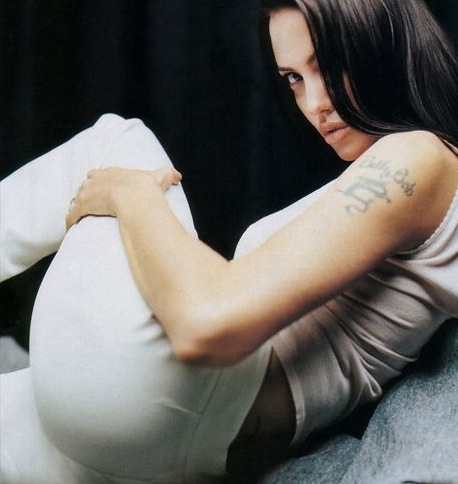 This entry has nothing to do with Barry White. It's just, when I think about setting the mood, I always think of Barry White. Can't help it.
This entry has nothing to do with Barry White. It's just, when I think about setting the mood, I always think of Barry White. Can't help it. About two years ago I discovered this little nugget about myself: Most days I have a line or two of a song running through my head, and, while I've come to whatever it is unconsciously, the specifics are not coincidental. Not one bit. The music of DJ Subconscious (a.k.a DJ Sub, a.k.a. Sub-Derm, a.k.a. something way cooler) is always giving me a glimpse of what I'm feeling and wanting.
Sometimes the connections are subtle. Usually not. The 3 months (and counting) that I had the breathlessly fantastic opening lines of Glee's version of "Don't Rain on My Parade" dancing in my cranium; the telling verse from the fairy tale musical Into the Woods, "How can you what you want/til you get what you want/and you see if you like it" -- once I notice what's playing, the point is kind of obvious.
Noticing my internal playlist can be hugely useful. Because on any given day, who knows if I know what's really going on with me. It's easy to lose touch with yourself when you're busy. Hearing the song, really hearing, helps me regain contact, if you will, and it can direct me, too.
The music in our liturgies is similar. It's there to focus and direct us, to help us to get in touch with the feelings or aspirations of different moments in the liturgy. The best gathering songs draw us all together and have a sense of energy, momentum, invitation. Psalms often speak about our needs, our longings - The Lord Hears the Cry of the Poor. The Great Amen at the end of the Eucharistic prayer should soar high and loud, signifying that sense of acclamation and praise. God has become present!
The communion song works the same way. So we get lots of songs about being hungry or in need or lost and being fed or helped or found. And, much as in the opening and closing songs, a good communion song has a certain energy to it. It's poppy, not in the sense of being superficial or trendy -- today's communion song is most definitely not by the Foo Fighters -- but in the sense of being something attractive and easy to sing. The reception of communion is a unique moment of participation in the liturgy, and our musical choices at this moment are meant to exemplify that by getting us in touch with our need and making us want to participate. We want songs grounded in scripture that feel liberating, joyful, like a celebration.
Some parishes choose instead more sober songs, out of a sense that by its nature as a moment of communion with the Lord, this is a point of highest reverence. There are risks to this interpretation, of course; sobriety unwatched easily turns funereal or inert. (God, does it.) But bad examples should not kill a good idea. By definition, reverential is still participatory, and sober can work. (Although, honestly, if you have the chance to celebrate I'm not quite sure why you wouldn't. But that's me. And I certainly acknowledge, more joyful, upbeat communion hymns can also go terribly wrong. Yeah, Carey Landry, I'm talking to you.)
Whichever approach a parish takes, the communion hymn should engage us. It must be participatory. Some choirs like to use this moment to do a "number". Child of mine, that ain't right. Communion is by definition not a solo.
 Whitney, put your hands down and step back into the choir.
Whitney, put your hands down and step back into the choir.It's also not a time for songs the congregation doesn't know, or that are difficult to sing, or that drown out the congregation. If a musical director is going to do something new, they'd best have practiced it with us already. And if it's a hard song for we ordinary folk to sing, or the director just overwhelm us with the orchestration of the choir and company, you have to ask yourself, why exactly are they singing this? Who are they singing it for?
In touch through a well-chosen melody with the moment, with our hunger and God's invitation, we're ready to stand and come to the table.















No comments:
Post a Comment